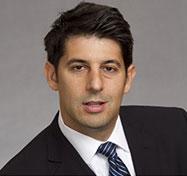
Learn the critical legal tech skills needed for 21-century lawyering.
The five-course Legal Tech Skills Certificate will teach lawyers, paralegals, and legal support personnel the essential skills needed to use the programs law firms already use daily – Microsoft Word, Excel and Outlook, and Adobe Acrobat. These courses will train participants on how to:
- properly create, format, index, hyperlink and bookmark documents including wills, contracts, pleadings, motion papers and trial memoranda;
- more efficiently, effectively and securely use email;
- redact, OCR, and bates stamp documents;
- comply with certain e-filing requirements; and
- manipulate and work with spreadsheets to improve the services they offer to their clients.
Registration is now closed.
Course Schedules
Each course includes one virtual 2-hour live session, step-by-step recorded instructions for completing key tasks, and a tip sheet for each program.
April 6, noon-2 p.m., Held via Zoom
Microsoft Word
Recent changes to the rules in New York State courts include new requirements for submission of motions, pre-trial memoranda, and trial exhibits. These changes include strict page and word limits, submission of pre-marked exhibits, use of tabs, indexes, bookmarks, and hyperlinks to refer to supporting evidence, as well as other formatting requirements.
Whether you are filing documents with the court or preparing wills, contracts, or other documents for your clients, this course shows attorneys how to properly use Word’s most important features, including track changes, table of contents, pagination, styles, numbering, headings, outline views, and References.
April 20, noon-2 p.m., Held via Zoom
Adobe PDF
With e-filing in the federal and state courts, attorneys must be able to convert documents to the proper PDF format. In addition, each appellate division has its own set of requirements. Briefs and records must include a table of contents with bookmarks to corresponding pages, hyperlinks to authorities stated, with copies included as a single PDF. PDF submissions may not exceed a specified size, must be reduced and optimized prior to filing, and the PDF must be submitted in the text searchable PDF archival format (PDF/A).
Moreover, attorneys often need to create searchable PDFs from Word and other programs, organize pages with PDFs, edit text in PDFs, sign PDF documents without printing, redact privileged or sensitive information from PDFs, bates-stamp PDFs, and convert scanned PDFs into searchable PDFs. This course will cover all these tasks.
April 27, noon-2 p.m., Held via Zoom
Microsoft Excel Part 1
Many attorneys use Excel to simplify complex tasks. The course provides an excellent foundation for using Excel and developing basic and sophisticated Excel Skills. Attorneys often need to organize a workbook, find, sort, and filter data; manipulate strings, and create and apply formulas. This course will cover all these tasks.
May 4, noon-2 p.m., Held via Zoom
Microsoft Excel Part 2
The course provides an excellent opportunity to learn sophisticated Excel Skills. Many attorneys leverage the power of Excel for complex tasks, such as organizing and analyzing privilege logs and evidence, and exhibits; comparing potential damages scenarios; developing financial models; and calendaring court dates. This course shows attorneys how to use tables, charts, pivot tables, pivot charts to complete such legal tasks.
May 11, noon-2 p.m., Held via Zoom
Microsoft Outlook
This course shows attorneys how to properly use (not administer) Outlook’s most important features, including email signature, email management, search, sort, filter, auto-reply, templates, calendars, Quick Parts and Quick Steps. The course will also cover the importance of email management for security and client confidentiality.
Registration
Registration is now closed.
About the Instructor

John Tsiforas
Director of Law & Technology
John Tsiforas has over 15 years of experience developing legal tech software and strategies, and advising clients on the appropriate tech tools for legal matters.
Prior to attending law school, John managed a team of software developers at a litigation consulting firm, where they developed e-discovery and document review software.
After graduating from law school, John clerked at the Southern District of New York. He also practiced law at a prominent international law firm, where he was a litigation associate. His legal experience includes all aspects of civil litigation, both state and federal, with a focus on complex commercial litigation, and the rendering of advice on E-Discovery issues.
At Hofstra Law, in addition to serving as the Director of Law & Technology, John is also Director of the Law School’s Law, Logic & Technology Research Laboratory.
